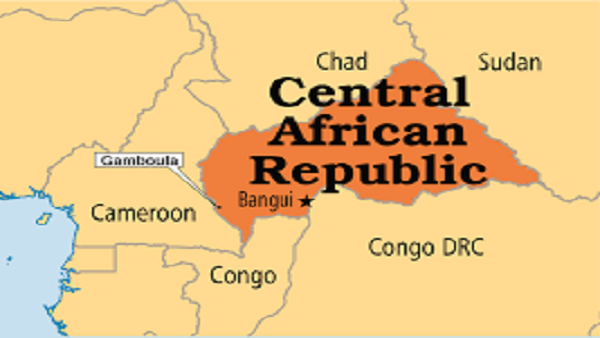The United Nations’ top genocide official said on Friday he had reports that militia fighters in Central African Republic hunted down and massacred members of the Fulani ethnic group during violence that killed 85 civilians this week.
Clashes erupted on Monday in Bria, a town about 600 km (370 miles) northeast of the capital Bangui, between rival rebel groups the Popular Front for the Renaissance of Central African Republic (FPRC) and the Union for Peace in Central Africa (UPC).
In a statement, Adama Dieng, the U.N.’s special adviser on the prevention of genocide, said the FPRC reportedly singled out ethnic Fulani in the town, carrying out house-to-house searches, killing, looting and abducting residents.
The UPC is largely composed of Fulani, a group of historically nomadic herders found across West and Central Africa.
FPRC fighters also entered hospital buildings and prevented wounded Fulani from receiving medical treatment.
In addition to the dead, another 76 people were wounded and nearly 11,000 displaced by the violence, Dieng said. Fighting between the FPRC and UPC also broke out in the town of Bambari.
“If carried out in a widespread or systematic manner, such acts could constitute crimes under international law that can be prosecuted before national or international courts,” Dieng said.
Both the FPRC and UPC are former members of the mainly Muslim Seleka rebel alliance that united to oust then-President Francois Bozize in 2013.
Their overthrow of the government of the majority Christian nation and subsequent human rights abuses sparked a backlash from Christian anti-balaka militias, known as anti-balaka.
Thousands were killed in the ensuing ethnic cleansing which led to the de facto partition of Central African Republic into a Muslim north and Christian south.
Successful elections, seen as essential to ending the chaos, were held earlier this year. However, flare-ups of violence are a regular occurrence.
This week’s clashes in Bria were the worst instance of ethnic killing since France ended its peacekeeping mission last month, leaving security largely in the hands of the 13,000-strong U.N. peacekeeping force.
The U.N. mission, known as MINUSCA, reinforced its presence in Bria in an attempt to head off any further escalation in the violence. And Dieng called for investigations to identify those responsible.
“Given the country’s recent history, this kind of targeted violence is extremely dangerous and must be stopped,” Dieng said.
Source: Reuters


